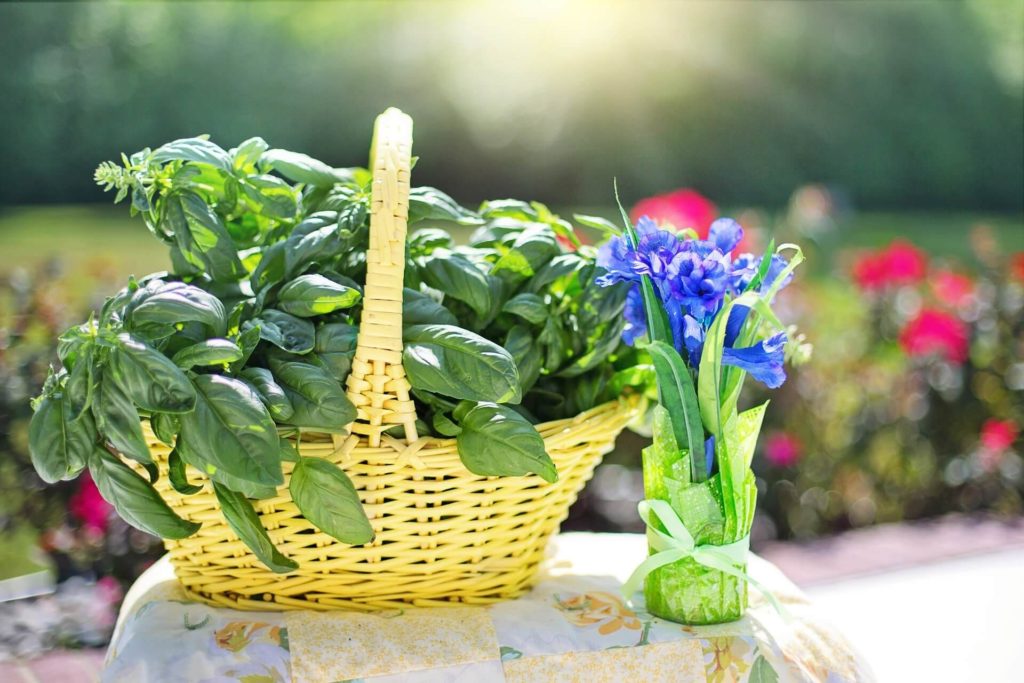Summer is in full swing and our gardens are starting to produce the fruits and vegetables of our labor. Now we can start storing our bounty for future use. Our vegetables and be frozen or canned. We are going to store our herbs differently.
Storing herbs use to scare me 😯, I didn’t know anything about storing herbs, so I avoided planting them for food, just for pest control in my yard. Now I have discovered storing herbs wasn’t hard at all, all I needed to do was clean them and know how to store my herbs.
Make sure your Herbs are CLEAN 🚿
Like with any garden product, always wash them before using them or storing them, even if you are an organic gardener.
One of the easiest and quickest ways to rinse your herbs, would be to put them in a salad spinner and rinse them with cold water. You will swirl them just a little to remove any dirt and debris from your herbs. After they’ve been rinsed, you will drain the salad spinner.
If you don’t have a salad spinner, you can use your colander and rinse them with cold water.
Quick Storage – Water or Refrigerate
Did you know there is a difference in how you store rosemary and basil? Knowing how to store your different herbs will go a long way in using them in the future.
You will bundle long-stemmed herbs together, like flowers. Examples of long-stemmed herbs are parsley, basil, and cilantro. You will trim the ends and then put them in a vase or jar with some water. Keep these herbs at room temperature if you want to use fresh herbs in your food or natural products. If you want to dry them out, that is the next tip. 😉
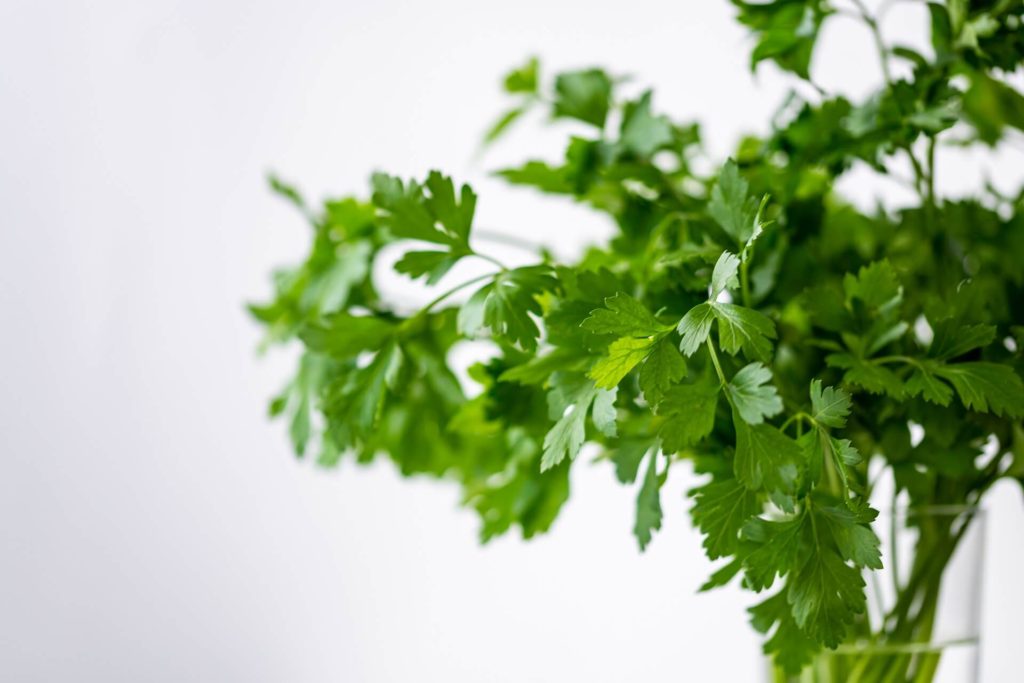
You will loosely bundle herbs like Thyme, rosemary, and lavender together. Once you have them wrapped, you can place them in the refrigerator or dry them.
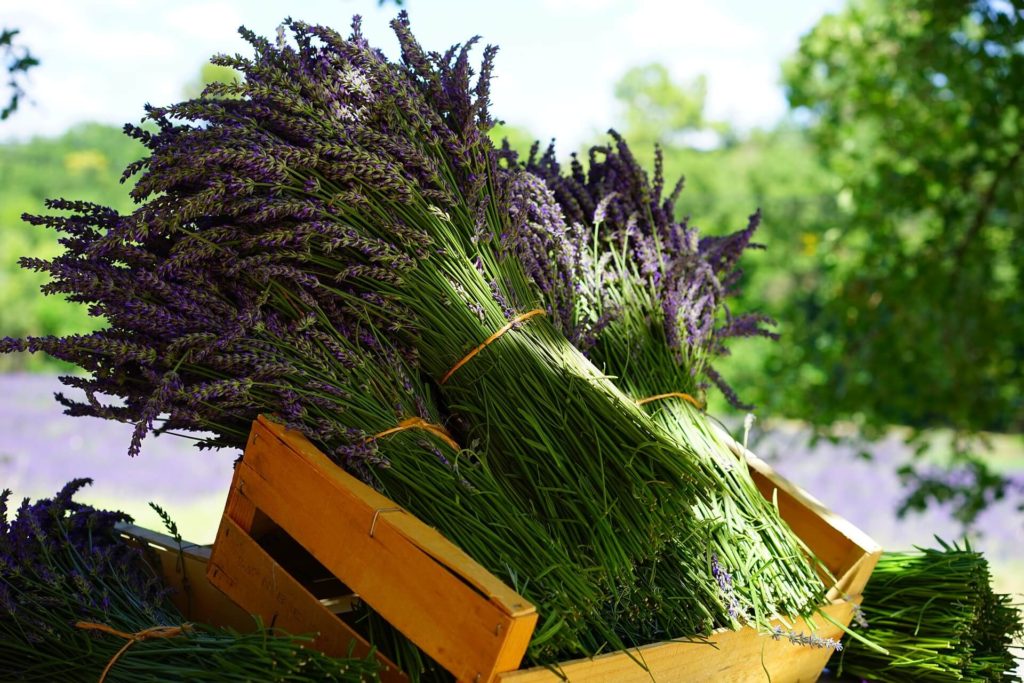
Storing your Herbs
There are different types of herbs, Hardy Herbs and Tender Herbs. I have a chart below to let you know what herbs are hardy or tender.
Hardy Herbs
You will store your hardy herbs by arranging them lengthwise in a single layer on a slightly damp paper towel. Once you have all your herb on the paper towel, you are going to roll them like a jellyroll. Now that you have the roll of herbs, you will either wrap them in plastic wrap or put them in a plastic storage bag and put them in the refrigerator.
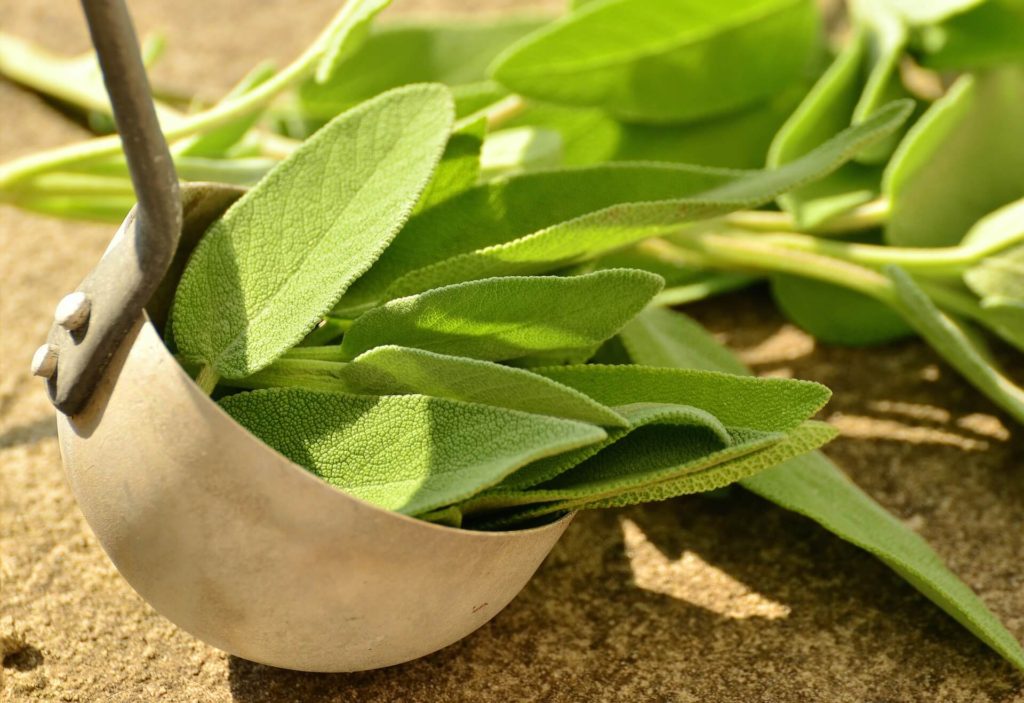
Tender Herbs
You will store your tender herbs by snipping off the bases of the stems and remove any discolored or wilted leaves. You fill a glass storage jar with about an inch of water in the bottom. You will place your trimmed herbs in the storage jar and put the lid on the jar. If you don’t have the lid, you can use a plastic bag and rubber band to seal the top. Place the jar in the refrigerator.
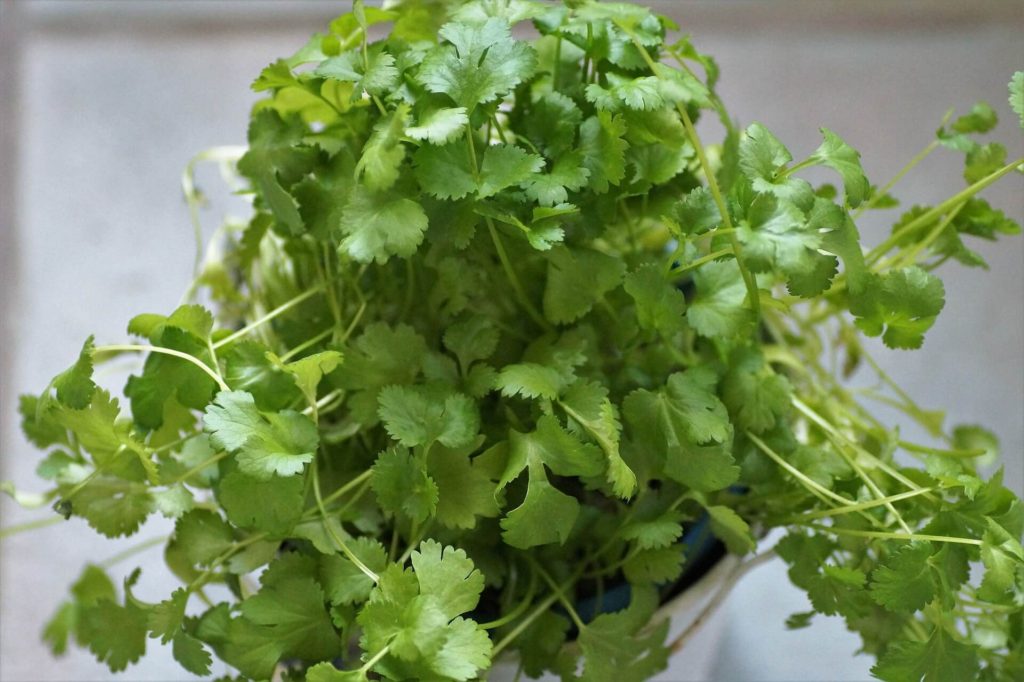
Basil is Special
Basil is a special herb and you will store your basil in a jar at room temperature. Trim the bases off the stems and put the bunch of basil in a storage jar with one to two inches of water in it. Place the storage jar out of direct sunlight, but somewhere so it can have indirect sunlight light.
| Herb | Herb Type | Average Lifespan |
| Parsley | Tender | 3 weeks |
| Cilantro | Tender | 3 weeks |
| Dill | Tender | 2 weeks |
| Mint | Tender | 2 weeks |
| Tarragon | Tender | 3 weeks |
| Chervil | Tender | 1 1/2 weeks |
| Basil | Special | 2 weeks |
| Rosemary | Hardy | 3 weeks |
| Thyme | Hardy | 2 weeks |
| Sage | Hardy | 2 weeks |
| Savory | Hardy | 2 weeks |
| Chives | Hardy | 1 week |
Keeping Your Herbs Fresh
We all have plans to use our herbs before they lose their freshness, but sometimes that doesn’t happen. Here are some tips to keep your herb fresh longer.
Too much light: Once you pick your herbs and are storing them for use later, make sure you don’t expose them to a lot of lights. Too much light can turn your herbs yellow, light will damage the chlorophyll in your herbs.
Too much Oxygen: Wrap or cover your herbs to keep them from being over exposed to oxygen.
Too much moisture: The tips above said to wrap your herbs in a damp paper towel or put them in a jar of water, but too much moisture will cause your herbs to turn, become slimy, or mold. Monitor your herbs that you are storing to make sure there isn’t too much moisture on them.
Not enough moisture: The opposite of too much moisture, not enough moisture, can also cause your herbs to lose their freshness. Not enough moisture will dry out your herbs and this will cause your herbs to lose their potency.
Too cold or too hot: Storing your herbs in the refrigerator is usually the best way to store them, other than Special Basil and some mints. But where you place your herbs in the refrigerator will also affect how long they stay fresh. Some areas in your refrigerator will “freeze” your herbs and cause them to wilt and lose their freshness. Some refrigerator has a special, temperature-controlled drawer for vegetables to keep them fresh. Make sure you store your herbs in the area of your refrigerator that will not freeze them but keep them nice and cool.
I hope these tips help you as you grow your herbs and learn about storing them properly. If you like these tips, please check out my shop for some herbal tea ideas, https://thepalmettograce.com/product/5-herbal-teas-to-make-your-day-better/
